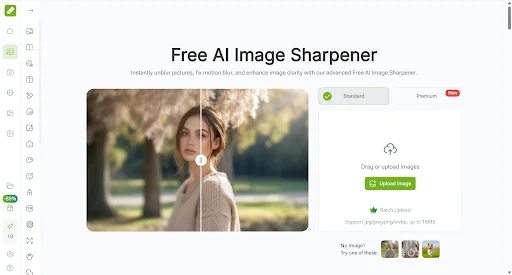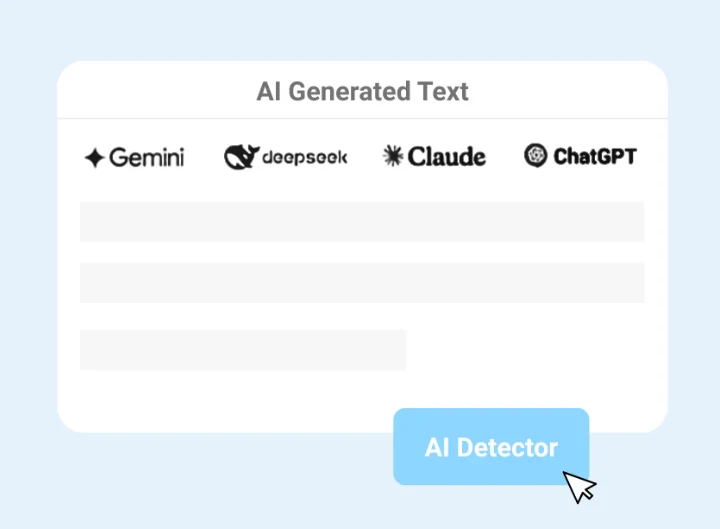
Global mobile app downloads in 2024 alone reached over 257 billion, confirming the perpetual increase in demand for faster, smarter, and more intuitive digital experiences. With rising user expectations and shrinking development cycles, artificial intelligence (AI) has become not only a technological advance but also a basic driver transforming the entire app development process.
AI is no longer relegated to the realm of science fiction or behind-the-scenes automation. Now, it directly impacts the way apps are thought of, designed, coded, tested, and optimized. From code generation and workflow optimization to personalized user experiences and optimizing post-launch performance, AI has revolutionized app development into an intelligent, more data-centric process.
In this article, we’ll explore the profound impact of AI on every stage of the app development lifecycle and spotlight how it enables powerful new in-app experiences.
Key Takeaways
- AI is reshaping app development across every stage, from ideation to post-launch optimization.
- Generative AI boosts developer productivity and accelerates coding.
- AI enhances UI/UX through personalization and adaptive design.
- Automated testing improves app reliability and reduces time to market.
- AI powers modern app features like chatbots, voice recognition, and predictive analytics.
- Businesses must still address challenges like data privacy and ethical AI use.
AI’s Impact on the App Development Lifecycle
Ideation & Prototyping: Smarter Beginnings
AI-powered ideation tools now help teams move from a blank slate to viable concepts faster than ever.
- AI-driven ideation platforms analyze market trends, competitor apps, and user data to propose features that resonate with target audiences.
- Prototyping tools like Uizard and Figma AI use natural language prompts to generate wireframes, enabling rapid iteration with minimal manual input.
- Predictive analytics assess potential user behaviors, improving decision-making in the early stages.
By incorporating market analysis and user insights early, teams can validate ideas quickly and reduce the risk of building the wrong product.
Code Generation & Optimization: The Rise of AI Coders
Generative AI tools such as GitHub Copilot, Amazon CodeWhisperer, and Tabnine are revolutionizing the way developers write code.
- These tools provide intelligent suggestions, auto-generate boilerplate code, and even complete full functions, freeing developers to focus on complex logic.
- AI engines also optimize code for performance and scalability, suggesting improvements based on best practices.
- By identifying inefficiencies and potential bugs early, they reduce human error and accelerate development cycles.
This shift boosts developer productivity, shortens time-to-market, and makes custom development more accessible, even for smaller teams.
UI/UX Design Enhancement: Personalization & Intuition
AI is redefining what intuitive design means by making interfaces more adaptive and user-centric.
- Personalized user experiences are built on AI-driven behavioral data analysis, enabling apps to adjust layouts, colors, and content dynamically.
- Tools like Adobe Sensei and Canva’s Magic Design offer design automation, generating layouts that are both aesthetically pleasing and responsive.
- Predictive UX tools track real-time user behavior to optimize engagement and reduce friction.
From accessibility improvements to hyper-relevant content delivery, AI in UI/UX enhances both usability and satisfaction.
Quality Assurance & Testing: Faster, Smarter Debugging
Testing, once a manual bottleneck, is now smarter and faster thanks to AI.
- Automated QA tools like Applitools and Testim use machine learning to generate test cases, detect visual regressions, and identify functional bugs.
- AI-assisted testing can uncover hidden security vulnerabilities and assess app stability under various conditions.
- Predictive analytics anticipate which modules are more likely to fail, enabling preemptive action.
This not only improves product reliability but also drastically reduces testing time and costs.
Post-Launch & Maintenance: Continuous Improvement
AI ensures that app optimization doesn’t stop after launch, it becomes continuous.
- Tools like New Relic and Datadog use real-time monitoring to detect performance bottlenecks, server issues, and UX drop-offs.
- Automated systems can deploy bug fixes and updates based on AI-detected issues or user feedback trends.
- Sentiment analysis of app store reviews and usage data provides actionable insights for feature updates.
AI-driven analytics ensure your app remains competitive, relevant, and efficient over time.
AI-Powered Features in Modern Apps
AI isn’t just transforming how apps are built, it’s reshaping what apps can do.
Hyper-Personalization
From e-commerce to media apps, AI algorithms tailor product recommendations, content feeds, and user experiences in real time.
- Netflix and Spotify use machine learning to suggest content users didn’t know they wanted.
- E-commerce apps personalize offers, promotions, and product bundles based on shopping behavior.
Enhanced User Interaction
- AI chatbots and virtual assistants provide 24/7 customer support and in-app guidance (e.g., Siri, Replika).
- Voice recognition apps allow hands-free interaction (e.g., Alexa, Google Assistant).
- Image recognition and AR features enhance utility (e.g., Google Lens, IKEA Place).
Advanced Security & Authentication
AI helps detect fraudulent activity and strengthen authentication:
- Biometric systems powered by machine learning identify users via facial or fingerprint recognition.
- Anomaly detection algorithms flag suspicious behavior in real time.
Predictive Analytics
Apps increasingly forecast user behavior, suggest next actions, and personalize onboarding experiences based on historical and contextual data.
Challenges & Considerations
While the benefits are immense, integrating AI in app development comes with challenges.
- Data privacy: AI thrives on data, raising concerns about compliance and user trust.
- Ethical AI: Bias in algorithms can lead to unfair or harmful outcomes, especially in security and personalization features.
- Integration complexity: AI implementation demands expertise in data science and machine learning.
- Cost of implementation: Initial investment in AI infrastructure, tools, and talent can be high.
The Future of AI in App Development
AI’s evolution is far from over.
- Edge AI and AIOps are emerging trends, enabling low-latency decision-making and smarter infrastructure management.
- Developers will play a more strategic and creative role, leveraging AI to innovate rather than replace core tasks.
- Expect tighter synergy between AI and app development as tools become more accessible, intelligent, and context-aware.
Conclusion
Artificial intelligence has undeniably transformed app development from ideation and design to testing and optimization. With faster development cycles, enhanced personalization, smarter user interfaces, and real-time performance improvements, AI unlocks both efficiency and innovation.
For businesses and developers alike, understanding and embracing AI in app development isn’t optional, it’s a strategic imperative.

Why Retail Software Testing is Critical for Effective E-commerce Development?

How Sales Teams Increased Productivity with Parallel Dialers

Curtain Dry Cleaning and Leather Sofa Cleaning – Reliable Care by Duo Nini

Bespoke in the South: How Charlotte’s Elite Are Personalizing Their Rolls-Royce

The Ultimate Guide to Family-Friendly Communities: Planning Your Family Vacation to Destin Florida

Unlocking Innovation: How an AI Software Development Service Can Transform Your Business

Artificial Intelligence: Transforming the Future of Business and Everyday Life

AI-Driven Image Restoration & Reuse: VisualGPT AI Image Sharpener









